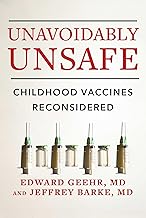A recent study conducted by researchers at Henry Ford Health System has sparked controversy and misinformation regarding the safety of childhood vaccines. The study, titled “Impact of Childhood Vaccination on Short and Long-Term Chronic Health Outcomes in Children: A Birth Cohort Study,” was presented during a U.S. Senate hearing chaired by Senator Ron Johnson. The study aimed to compare the prevalence of chronic health conditions in vaccinated and unvaccinated children born between 2000 and 2016.
According to lawyer Aaron Siri, who presented the study, vaccinated children showed a statistically significant increase in various chronic diseases compared to unvaccinated children. This information quickly spread on social media, with figures like U.S. Congresswoman Marjorie Taylor Greene and Nicolas Hulscher sharing the study results, claiming it revealed alarming outcomes.
The study, however, has been met with skepticism and criticism from experts in the field. Biostatistician Jeffrey Morris raised concerns about the study’s methodology, particularly the bias in healthcare utilization between vaccinated and unvaccinated children. Vaccinated children were found to have more clinic visits on average, potentially leading to higher rates of diagnosed medical conditions compared to unvaccinated children.
Another critical issue highlighted was the significant differences in baseline characteristics between the two groups. The vaccinated group had a higher proportion of children with birth-related risk factors, which could independently raise the risk of future medical conditions, potentially skewing the study results.
Furthermore, the study’s longer follow-up duration for vaccinated children could have led to more opportunities for diagnosis, particularly for conditions identified later in childhood. This disparity in follow-up time and age distributions between the two groups could have influenced the study’s findings, making it more likely for medical conditions to be detected in vaccinated children.
Despite claims made by vaccine opponents based on the Henry Ford study, experts caution against using it as credible evidence of a causal link between childhood vaccinations and chronic medical conditions. The study’s flaws, including biases in healthcare utilization, baseline characteristics, and follow-up duration, limit its validity and raise questions about the reliability of its conclusions.
In contrast to the Henry Ford study, other well-designed studies have not found evidence supporting the notion that childhood vaccinations contribute to poorer health outcomes. It is essential to critically evaluate research findings and consider the methodology and potential biases before drawing conclusions about the safety and efficacy of vaccines.
📰 Related Articles
- Viral Wedding Cake Prank Sparks Divorce Debate Among Couples
- Mother Sparks Debate on Birthday Party Inclusivity Among Parents
- Dems’ Controversial Support for Illegal Migrants Sparks Public Debate
- Controversial Wedding Cake Design Sparks Online Backlash and Debate
- Controversial Wedding Cake Design Sparks Debate on Marriage Stereotypes






